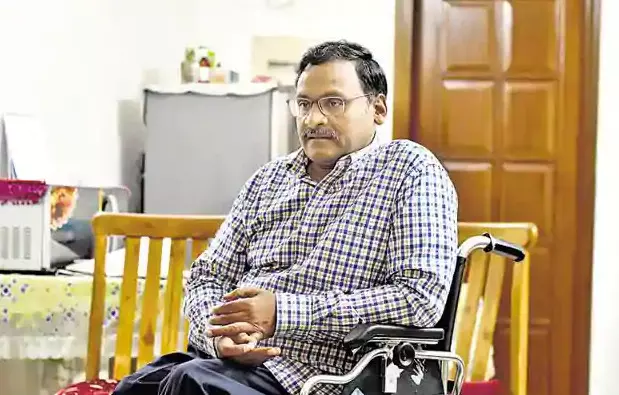
Delhi University professor Saibaba's parole application rejected
text_fieldsProfessor Saibaba _file
Nagpur: The Nagpur bench of Bombay High Court on Tuesday refused to grant emergency parole to Delhi University's former professor G N Saibaba to attend his late mother's post-funeral rituals.
A division bench of Justices Z A Haq and A G Gharote, however, directed the Nagpur jail authorities to make necessary arrangements for Saibaba to talk to his family via video conferencing on one day.
Saibaba, who is serving life sentence in the Nagpur Central Prison of Maharashtra for links with Maoists, had sought parole to go to Hyderabad to attend the post-funeral rituals of his 74-year-old mother who died on August 1.
The court, while rejecting the plea for emergency parole, noted that it would be difficult to arrange for security personnel to escort Saibaba from Nagpur to Hyderabad amid the COVID-19 pandemic.
Special public prosecutor P K Sathianathan, appearing for the government, opposed Saibaba's plea and argued that most of the post-funeral rituals are complete.
Saibaba, who is wheelchair-bound with 90 per cent physical disabilities, had last month also sought parole to visit his ailing mother which was rejected by the prison authorities.
In March 2017, a sessions court in Maharashtras Gadchiroli district convicted Saibaba and four others, including a journalist and a student of the Jawaharlal Nehru University (JNU),for Maoist links and indulging in activities amounting to waging war against the country.
The court had held Saibaba and others guilty under various provisions of the stringent Unlawful Activities Prevention Act (UAPA), and the Indian Penal Code (IPC).
Since his conviction, Saibaba has been lodged in the Nagpur Central Prison.






















